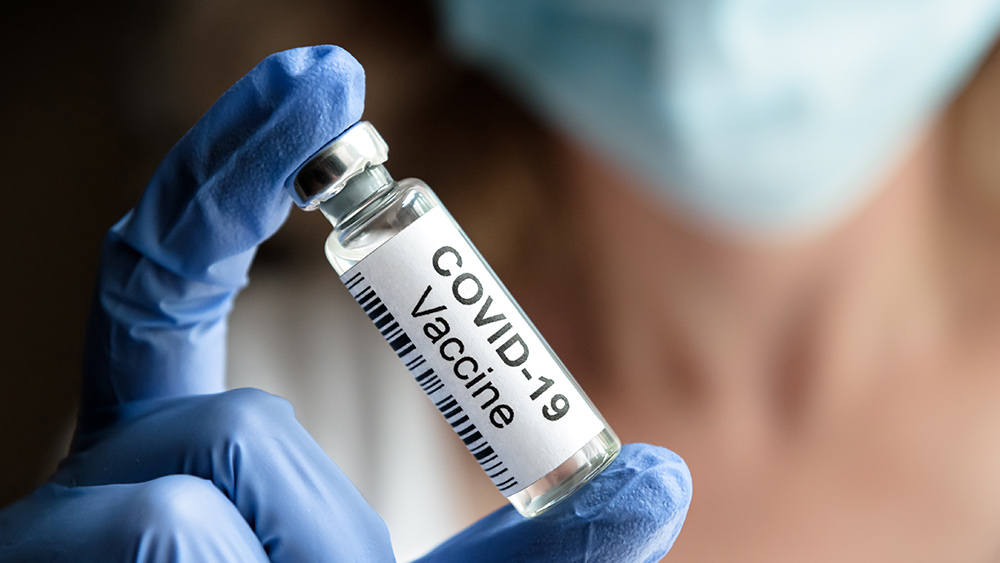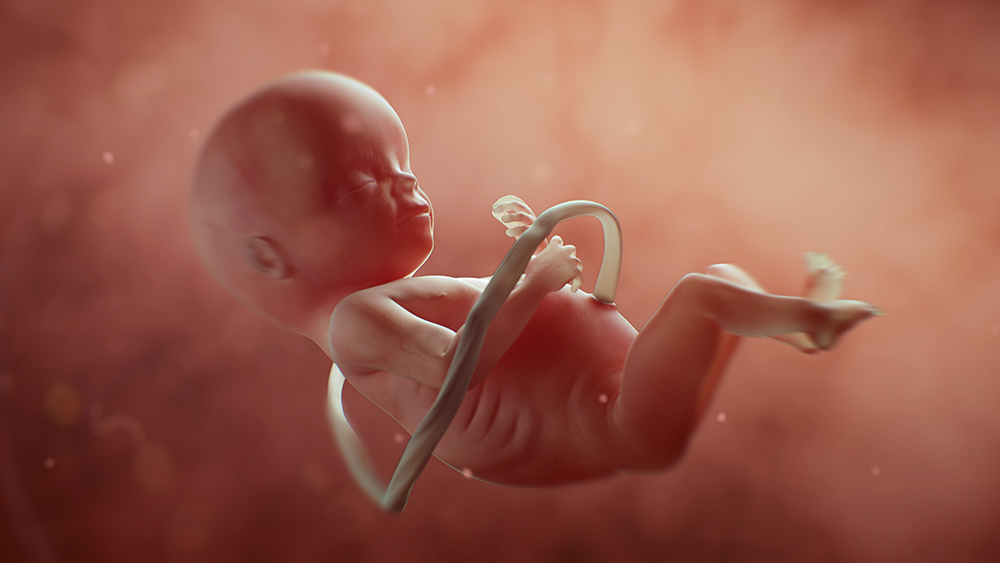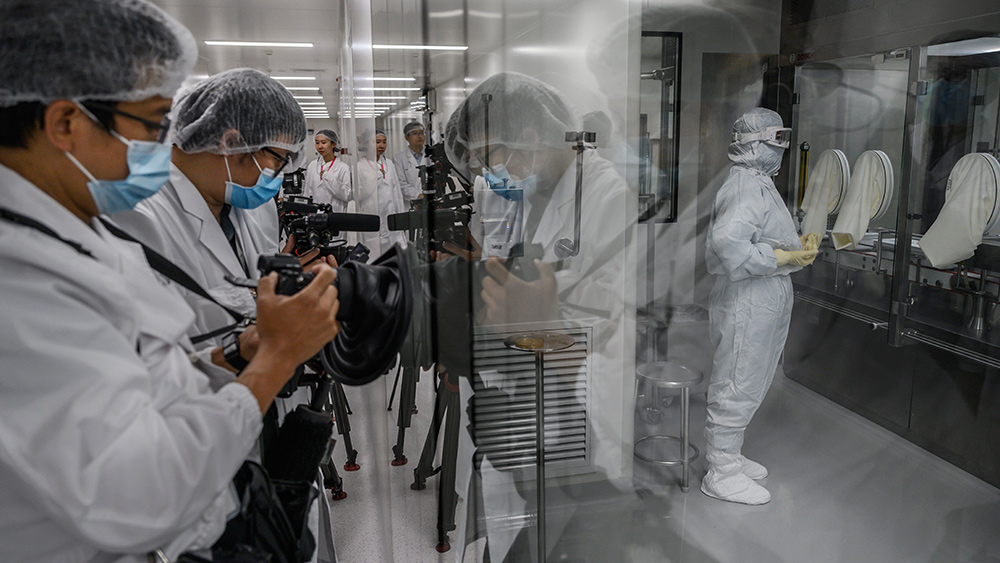Over 1.3 million Californians could be drinking tap water contaminated with chemicals linked to PARKINSON’S
04/12/2023 / By Zoey Sky

A study published in the journal Environmental Science & Technology has found that more than 1.3 million Californians may be drinking water contaminated with high levels of manganese. This is bad because the levels are enough to cause cognitive disabilities in children and Parkinson’s disease-like symptoms in adults.
The study was conducted by researchers from the University of California, Riverside (UCR).
For the study, the research team inspected private wells and public water systems throughout the Central Valley. Over 50 percent of the affected residents live in disadvantaged communities and results showed that almost 89 percent of residents are likely to access water highly contaminated with manganese.
While manganese is also found in water supplies worldwide, the U.S. is one of the only countries that does not enforce a maximum level.
Recent studies have revealed that exposure to excessive levels of manganese may cause Parkinson’s-like neurological symptoms since the mineral builds up in the basal ganglia area of the patient’s brain.
The researchers added that California residents who are worried about manganese exposure can take measures to treat contaminated water, such as purchasing treatment options like oxidation and precipitation filters. They also recommended water softeners, chlorination and reverse osmosis systems.
But not everyone can afford certain methods, such as devices for monitoring water quality that can cost up to $400 annually.
Ying added that since not a lot of people can afford them, “these communities can be subsidized to buy treatment options.” (Related: “Forever chemicals” from almost 42,000 sources threaten to contaminate drinking water.)

The team decided to investigate water from Central Valley because it is considered one of the country’s most productive and economically important agricultural regions. The area is also home to one-third of domestic well users in the state.
“These analyses demonstrate the need for additional well-monitoring programs that evaluate Mn and increased access to point-of-use treatment for domestic well users disproportionately burdened by associated costs of water treatment,” concluded the researchers.
What to do if your water contains manganese
Manganese is rarely found alone in the water. It’s rarer than iron, so if you find iron in your water, it may also be contaminated with manganese.
Signs of manganese in your drinking water supply can include:
- An orange-brown tint
- Orange or brown staining on surfaces that come into contact with water
- A metallic taste or smell
- Dark black or brown stains your laundry
High manganese levels in drinking water can cause manganese toxicity.
Symptoms of manganese toxicity can include:
- Depression
- Headaches
- Hearing problems
- Insomnia
- Irritability
- Loss of appetite
- Mania
- Muscle tremors
- Weakness
Manganese in your water supply can also cause dark brown or black stains on sinks, bathtubs, showers, laundry and plumbing fixtures.
Your water may also taste unpleasant, especially since manganese has a distinct metallic taste and aroma. Drinking water contaminated with manganese tastes unpleasant, and cooking with manganese-contaminated water can also give food an unpleasant metallic flavor.
Another study suggests lithium in water may be linked to autism
The research on manganese-contaminated water follows a study conducted by researchers from the University of California, Los Angeles (UCLA) that revealed an alarming link between lithium in drinking water and autism.
The UCLA study on lithium in drinking water revealed that pregnant women who drank water contaminated with the mineral had a “moderately higher risk” of giving birth to a baby with an autism spectrum disorder.
Beate Ritz, the study’s lead study author, explained that “any drinking water contaminants that may affect the developing human brain deserve intense scrutiny.”
“In the future, anthropogenic sources of lithium in water may become more widespread because of lithium battery use and disposal in landfills with the potential for groundwater contamination,” warned Ritz.
Ritz collaborated with Danish researchers who reviewed lithium levels in 151 public waterworks in Denmark, which made up about 50 percent of the country’s water supply.
The researchers gathered information from a nationwide database to find which systems supplied to homes with pregnant mothers from 1997 through 2013. The team then compared 12,799 children diagnosed with autism against 63,681 children who did not have an autism diagnosis.
The study findings revealed that autism diagnosis increased with higher lithium levels.
Compared to the lowest quartile of recorded lithium levels, or those in the 25th percentile, lithium levels in the second and third quartiles were linked to a 24 to 26 percent higher risk of autism.
In the highest quartile, the risk was “46 percent higher compared to the lowest quartile,” concluded the research team.
Visit Pollution.news to learn more about dangerous water and environmental contaminants.
Watch the video below for more tips on how to protect your family from contaminated drinking water.
This video is from the High Hopes channel on Brighteon.com.
More related stories:
EPA doing “bare minimum” to address toxic PFAS pollutants in drinking water.
Study: Proper hydration found to reduce long-term risks for heart failure.
Sources include:
Submit a correction >>
Tagged Under:
brain damaged, brain function, brain health, chemicals, children's health, clean water, cognitive health, Dangerous, drinking water, environment, Manganese, Parkinson's Disease, poison, research, tap water, toxic water, toxins, water health, water quality
This article may contain statements that reflect the opinion of the author




















